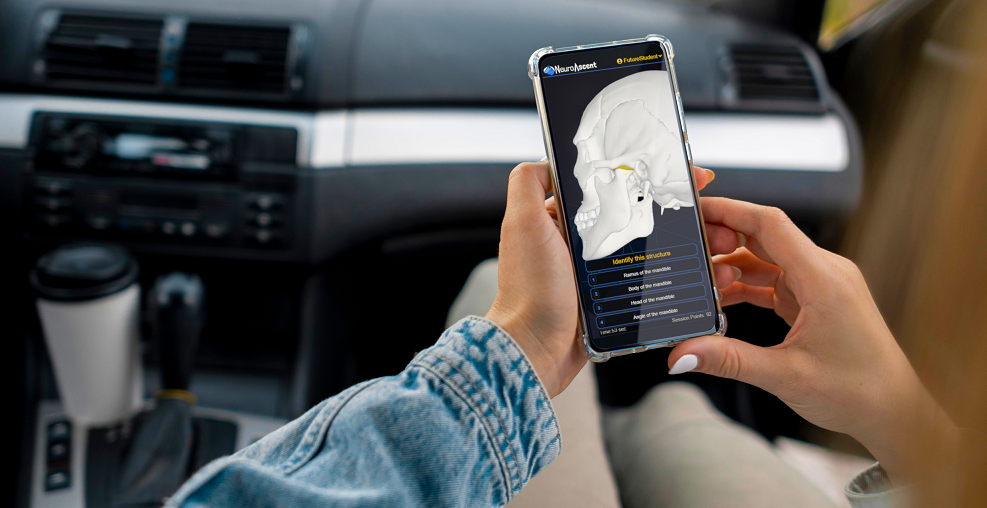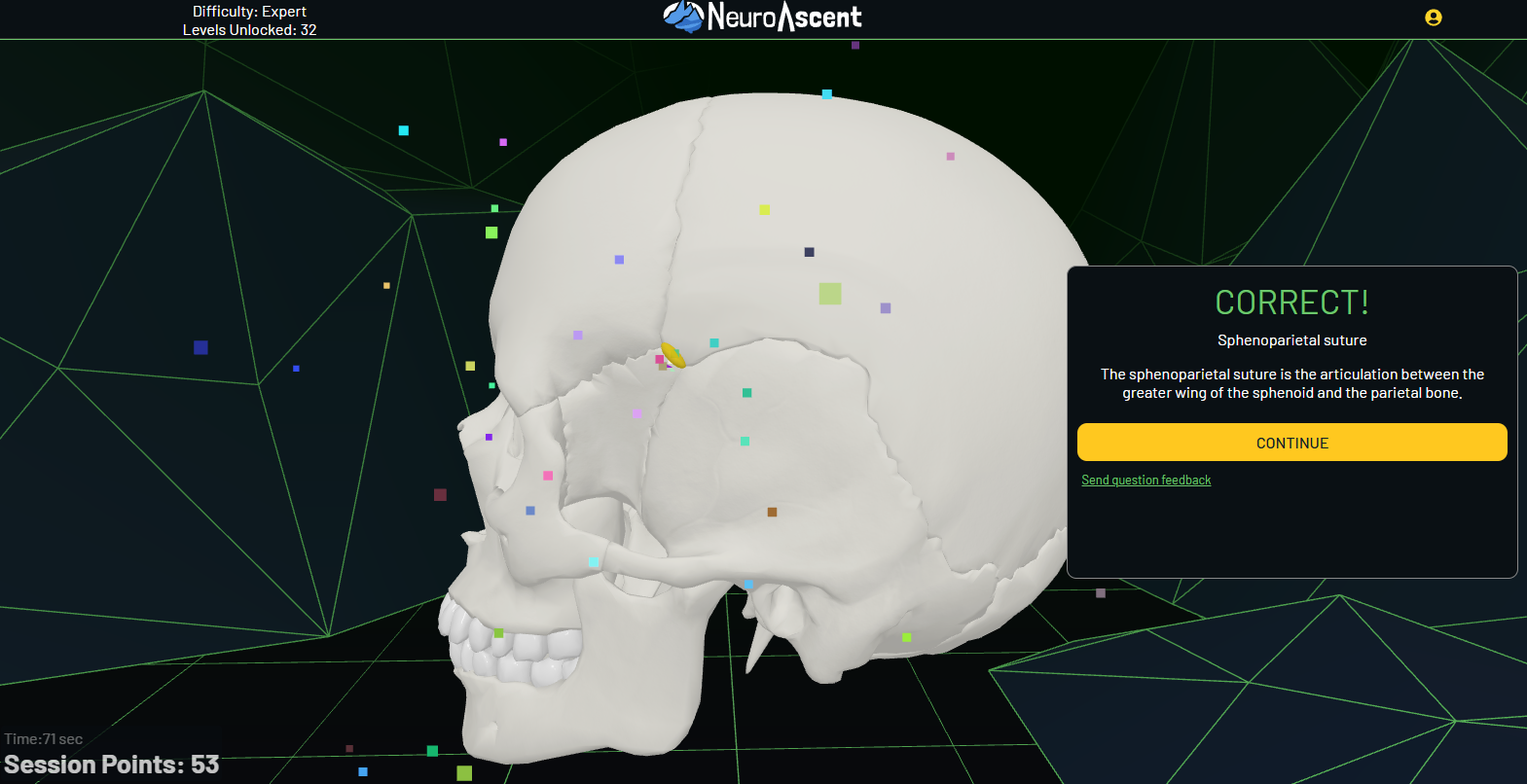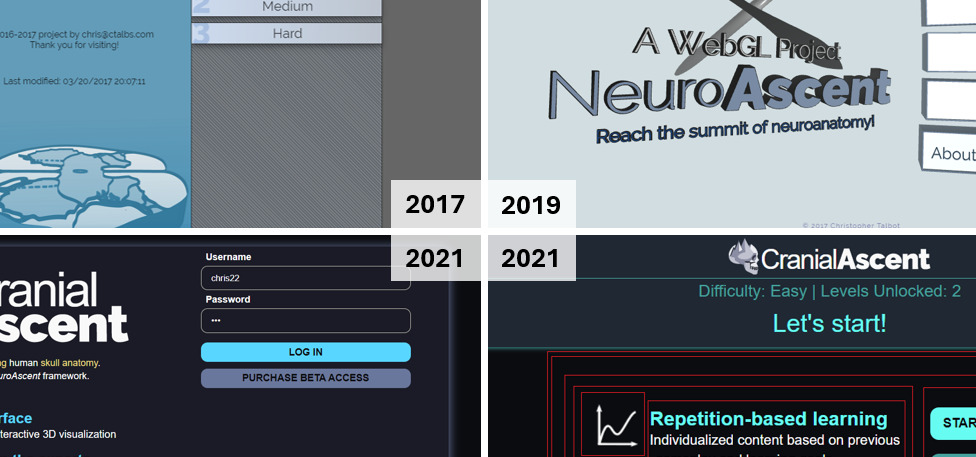A Growing Educational Universe
As we close out 2024, NeuroAscent has evolved into a comprehensive learning platform with an extensive catalog of neuroanatomy content. Our game-based learning environment now features:
- 18 distinct anatomical levels across multiple worlds
- 818 interactive anatomical objects
- Over 1,900 carefully crafted questions
- An average of 2.57 questions per anatomical object
The content spans three main sections:
- Cranial anatomy with 1,141 questions across 10 levels
- Spine anatomy featuring 191 questions across 4 levels
- Axial spinal cord anatomy containing 621 questions across 4 levels
Educational Depth
Our content is structured to support learners at every stage of their journey. The difficulty distribution of our 818 objects shows our commitment to comprehensive education:
- 229 entry-level objects for undergraduate studies
- 246 intermediate objects aligned with early medical education
- 210 advanced objects for specialized study
- 133 expert-level objects for those seeking mastery
User Engagement in 2024
Since our spring 2024 update, NeuroAscent has seen remarkable engagement:
- 274 new users joined our community
- 180 active learners engaged with our question bank
- Users answered 6,301 questions with a 70.81% correct response rate
2024 Learning Analytics
Our data reveals fascinating insights about how users learn:
- First-time encounter with questions: 54.70% accuracy
- By the third encounter: 84.67% accuracy
- By the sixth encounter: 92.26% accuracy
- Perfect scores achieved consistently after 10+ encounters
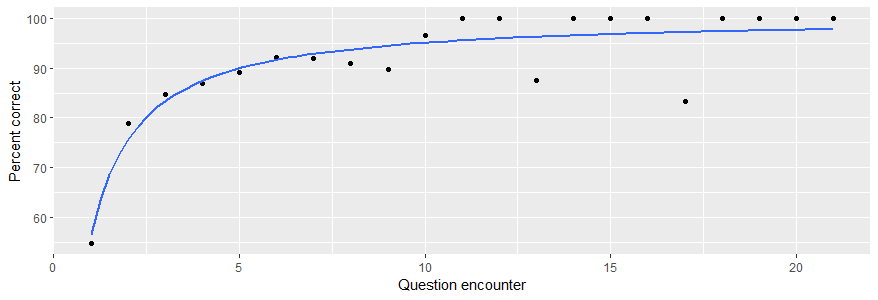
Average response times also improve with familiarity:
- First encounter: 9.17 seconds
- Second encounter: 5.81 seconds
- Fifth encounter: 4.88 seconds
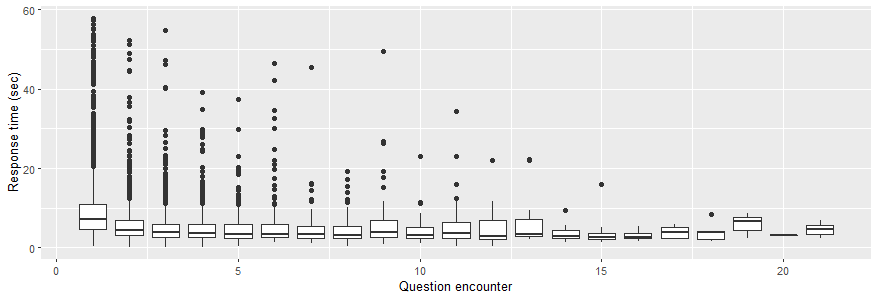
Looking Forward
As we enter 2025, these metrics not only showcase our platform’s growth but validate our approach to neuroanatomy education. The steady improvement in user performance demonstrates the effectiveness of our spaced repetition and game-based learning methods in neuroanatomy.
We’re particularly encouraged by our users’ engagement patterns, with many progressing from basic identification questions to complex clinical applications. This progression aligns perfectly with our mission to create comprehensive, accessible neuroanatomy education.
